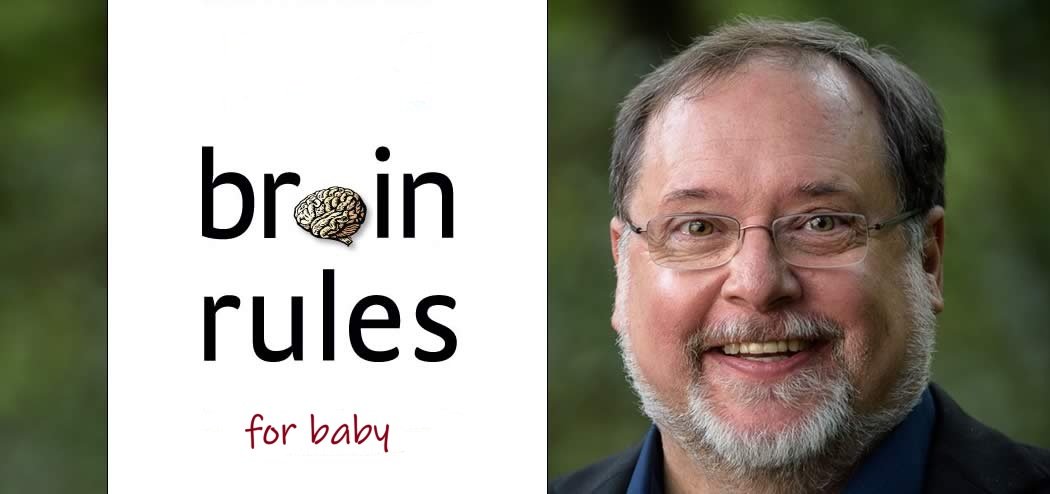I certainly understand the need for answers. The first child is like a sip of a heady drink, half mixed with happiness and fear, and drenched with a bucket of changes no one warned about.
— John Medina, Brain Rules for Baby
The first experience of parenthood is both joy and challenge. John Medina’s Brain Rules for Baby offers a scientifically grounded, objective approach to parenting based on a deep understanding of the child’s brain and the realities of family life.
Without exaggeration, one of the best books on natural parenting — and parenting in general — that I have had the fortune to read. Medina attempts to write an objective and informative book on child-rearing in contrast to a pile of contradictory books with minimal information — which feels like a breath of fresh air!
This is the ‘Spock‘ of the new generation — there are few concretized situations with detailed solutions, but there are general principles and depth of understanding. Medina explains why all those books differ so much: they overlook that every child is different, every parent is different, different people influence each child. And we cannot know the real causes of things, only guess at their connections — that is what hinders us from raising children properly.
A scientist by profession, Medina tries to write a scientific book in truly accessible language, and he mostly succeeds. Sometimes with somewhat awkward scientific humor, yet still.)
Myths about Mozart Effect
The author starts far back, even during pregnancy, where he neatly dispels myths about the benefits of Mozart. Science shows that the brain can remember even in the womb, so theoretically, one can influence a child’s preferences (if you didn’t consume certain foods during pregnancy, the child is likely to reject them too). However, Mozart does not improve intellectual abilities any more than special DVDs for children under three (which can sometimes even be harmful). The child perfectly remembers stress, so a pregnant woman must avoid it at all costs.
Next, Medina touches on the environment where the child grows, with parental relationships being decisive. Research shows the main causes of conflict in young families with newborns are sleep deprivation, social isolation, uneven distribution of duties, and depression. The main solution is empathy — a skill that should also build the parenting system. Empathy and clear rules with explanations are parents’ best friends.
Four Parenting Styles
Medina speaks of pillars on which the new human is built: from the very first days, our ground beneath our feet is safety. Without this ground, the brain cannot develop properly as it is programmed for survival. The child will neither learn well nor be happy without this base. The second pillar is relationships.
Human learning in its most natural state is primarily constant interaction. You can literally rewire a child’s brain by giving them relational experience.
— John Medina, Brain Rules for Baby
The third pillar is the understanding of wholeness: infants do not increase vocabulary until fine motor skills improve. Science confirms: the best development of a child’s brain happens in outdoor play, even better with parental involvement.
And the last pillar is four nutritional behavioral components to adjust during a child’s development: breastfeeding, communication, guided play, and encouraging effort rather than just outcomes.
Your behavioral formula must include four nourishing elements to adjust as the child grows: breastfeeding, communication, guided play, and praising efforts rather than achievements.
— John Medina, Brain Rules for Baby
What Is Intellect
How much can we influence our children’s intelligence?
50% is genetic, but the other half is room for parental imagination. Intellect is much more than cognitive ability; it largely consists of curiosity, self-control, creativity, verbal communication, and understanding nonverbal cues (like reading faces)—all of which can be worked on.
Intellect develops best in the embrace of caring parents (just not until retirement, okay?). Einstein did not have some genetically extraordinary brain; all he achieved was the result of ordinary hard work. By the way, did you know that after Einstein’s death in 1955, his brain was officially removed by pathologist Thomas Harvey for scientific study without the family’s direct consent? The brain was then divided into parts and preserved for research. Later, fragments were given to various researchers to study structural features that could explain Einstein’s genius. But nothing extraordinary was found in his brain.
Morality Is Innate
An important point: morality is innate. Our understanding of right and wrong can be shaken by poor upbringing, an unsuccessful model, or its absence. People are not born killers; they are made to be such.
And finally, a confirmation of my personal motherhood story and views from Medina ♥️: Caring for a child is a clever way to take care of yourself.



